From Town Topics: The article mentions a community-focused longitudinal study related to COVID-19, being led by a Princeton University research team. The data collected from this study will help draw a more accurate picture of the number of infectious cases, even among people showing no symptoms, and get a better sense of the antibody response at the individual and the community level.https://bit.ly/32bprVz
Monthly Archives: August 2020
Remote possibilities: Virtual internships connect Princeton students to academic, service opportunities
When the pandemic dashed dreams of traditional summer internships, the University helped students pivot to internships that are 100% digital. These opportunities span academic disciplines; others include a service component.https://bit.ly/31fjA2b
Russakovsky recognized for fighting bias and advancing diversity in AI research
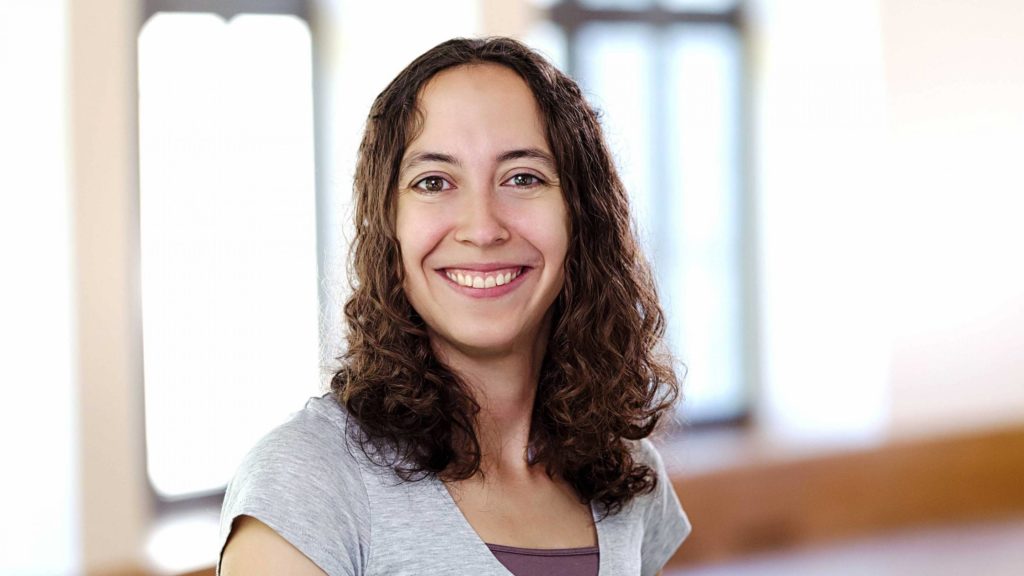
Olga Russakovsky, an assistant professor of computer science, has been recognized with two early-career awards from organizations that promote diversity in technical fields. The awards honor her contributions in research, education and outreach. https://bit.ly/32183Tq
New tools catch and release cellular targets at the flip of a light switch
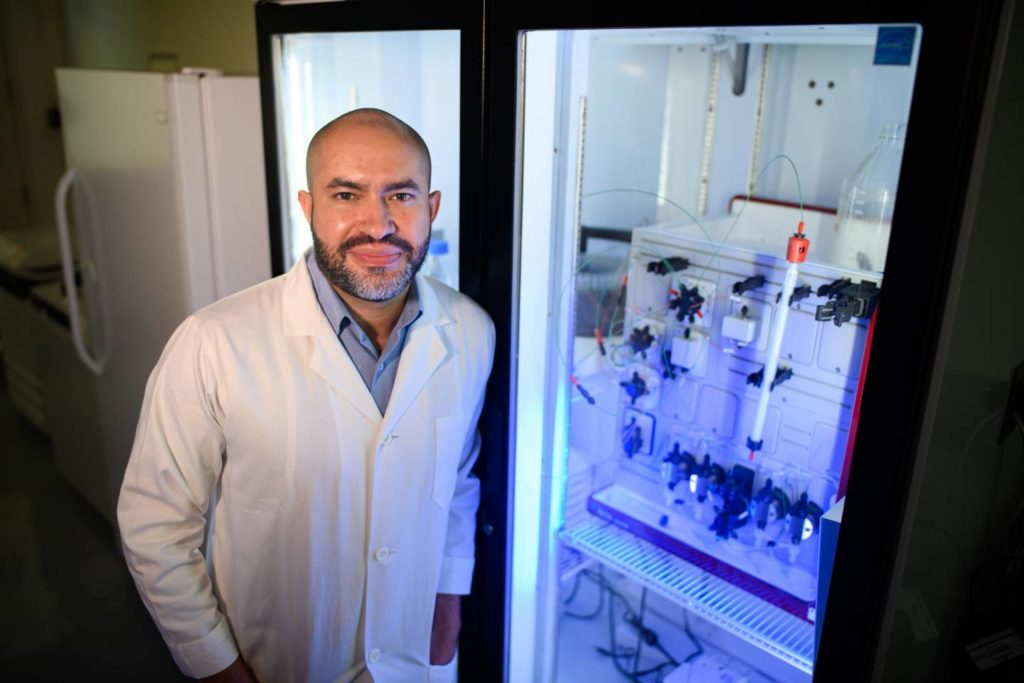
A Princeton team has developed a class of light-switchable, highly adaptable molecular tools with new capabilities to control cellular activities. The antibody-like proteins, called OptoBinders, allow researchers to rapidly control processes inside and outside of cells by directing their localization, with potential applications including protein purification, the improved production of biofuels, and new types of targeted cancer therapies. https://bit.ly/2EcBWYw
Princeton’s new pre-doctoral fellowship aims to help diversify academic pipeline
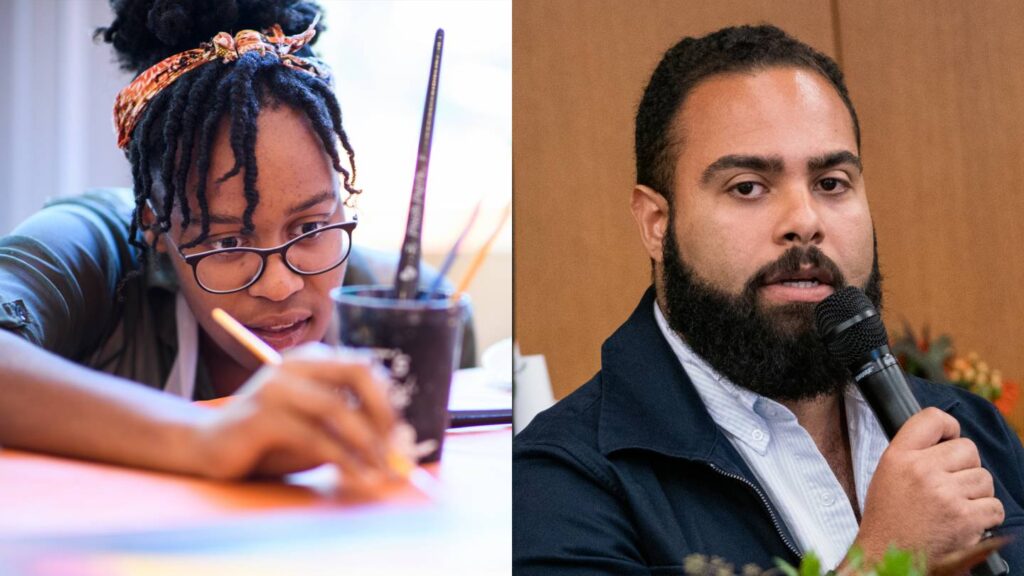
Princeton’s Graduate School has launched a new pre-doctoral fellowship, which will fund students to study at Princeton for a year before they enroll as first-year Ph.D. students. Students from groups historically underrepresented in higher education are especially encouraged to apply for the new fellowship, which is among University efforts to increase diversity on campus and within academia. https://bit.ly/2Yu7D79
University to launch asymptomatic COVID-19 testing protocol for on-campus students, faculty, researchers, staff
Princeton University is launching a comprehensive asymptomatic COVID-19 testing protocol for on-campus students, faculty, researchers and staff members as part of our public health plan to prevent the spread of the novel coronavirus. Asymptomatic testing — which is for individuals not currently experiencing symptoms — will be required for members of the University community who are physically on campus for at least 8 hours per week. The cost of testing will be paid by the University.https://bit.ly/2EeLv9k
Working toward November
Even as Princeton’s students deal with the unprecedented challenges COVID-19 has created in their personal and academic lives, many remained committed to fostering a spirit of civic engagement within the University community during this presidential election year. For example, the Vote100 campaign is working with communities across campus to encourage civic engagement in all forms. Sponsored by the Office of the Dean of Undergraduate Students and led by students, Vote100 plans voter registration drives, campus-wide debate watch parties, assistance with absentee ballot voting, Election Day celebrations, and social media campaigns to encourage others to engage civically in elections and democratic processes locally, nationally, and internationally. Other Tigers have taken up similar causes: from recruiting young poll workers and providing voter resources, to advocating against gerrymandering. Keep reading for these and more stories of Princetonians working “In the Nation’s Service…”
Stay safe and healthy.
Michael Hotchkiss, Ayana Gibbs, Jess Fasano, and Ben Chang
From muddy boots to mathematics: Advancing the science of ecosystems and biodiversity
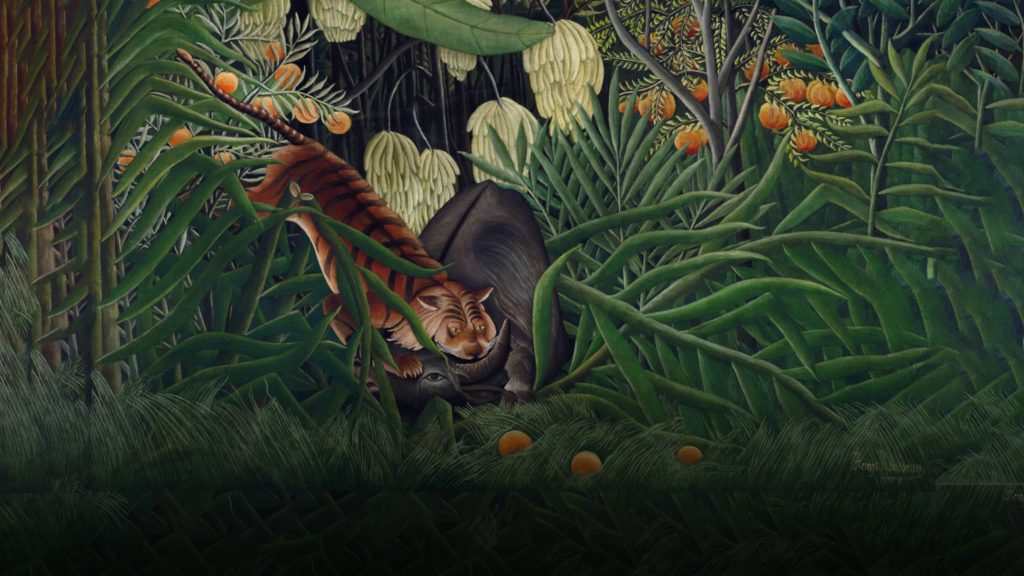
Princeton’s vital research across the spectrum of environmental issues is today and will continue to be pivotal to solving some of humanity’s toughest problems. Our impact is built on a long, deep, broad legacy of personal commitment, intellectual leadership, perseverance and innovation. This article is part of a series to present the sweep of Princeton’s environmental excellence over the past half-century.https://bit.ly/2PR4nxB
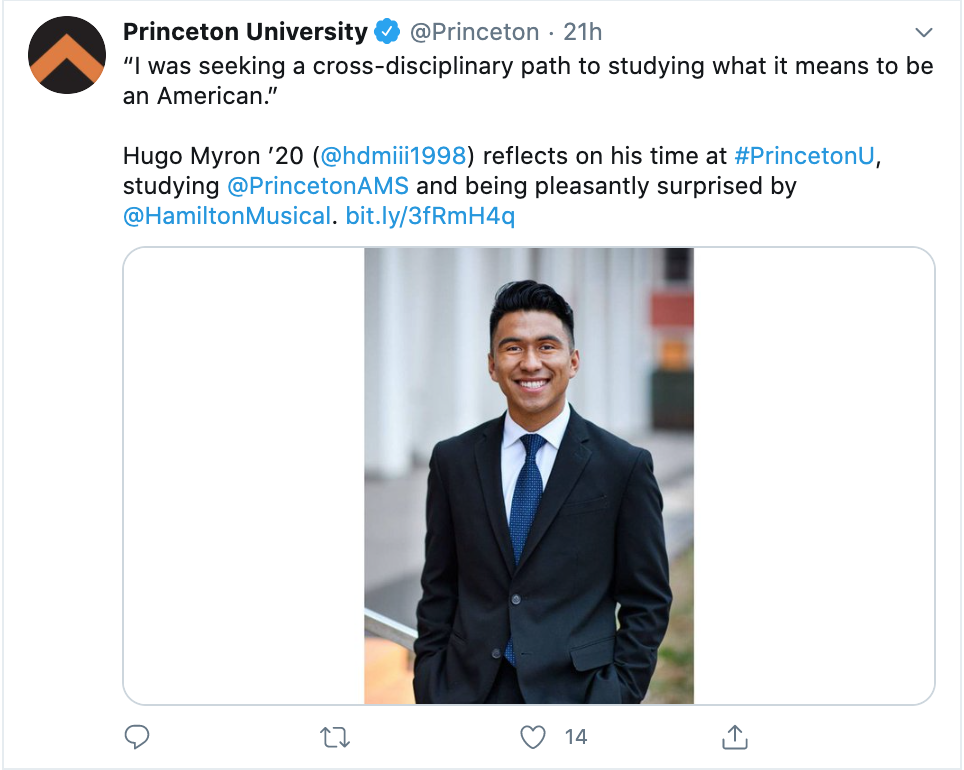
Politics & Polls #197: The Making of the Modern Conservative Movement Featuring Matt Grossmann
Politics&Polls: The GOP went from full control in only three state governments in 1992 to 26 in 2018. How did the party achieve such rapid success on the state-level? Political scientist Matt Grossmann joins Julian Zelizer in this week’s episode to discuss the rise of the modern conservative movement, its grassroots origins, and its state legislature strategy. https://bit.ly/3271OgX
‘Decolonizing your bookshelf’: students, alumni, and local businesses turn to books — and buying practices — to combat racism
From The Daily Princetonian: Though just one part of anti-racist activism, reading Black authors and supporting Black-owned bookstores have allowed people across the nation to engage more deeply with the movement. From student organizers and alumni activists to nearby bookstores, many in the University community are incorporating reading into their activism. https://bit.ly/33ZdzZ7
‘Because voting should be simple’: group of first-years compile resources for student civic engagement
From The Daily Princetonian: Hope Perry ’24 envisioned a resource in which college-aged people — who comprise 10 percent of voters in the coming election — could stay civically engaged and access all of the necessary resources to register to vote, without the hassle of navigating confusing state websites. Based in this vision, College Voters United was born.https://bit.ly/2XZO5XM
Experts are worried about a poll worker shortage. These students are recruiting young people to help.
From NBC News: Features Poll Hero, a project founded in part by a group of Princeton University students. Two students, Kai Tsurumaki and Kennedy Mattes, are quoted. https://nbcnews.to/3gZJzQr
Related from The Trentonian: Princeton U. student-athletes get involved with Poll Hero Project
Student Interns Step Up to Research Poverty With Don Burnes ’63
Princeton Alumni Weekly: Burnes, in collaboration with Kevin F. Adler, founder of the nonprofit Miracle Messages, is working on a new book about homelessness. The organization fights homelessness by reuniting families and strengthening social support. Burnes figured maybe an intern or two could help with research. He was surprised to receive nearly 20 applications from current students.https://bit.ly/2FqOdJx
Filipino Journalist Maria Ressa on Fighting for Democracy in the Age of Social Media
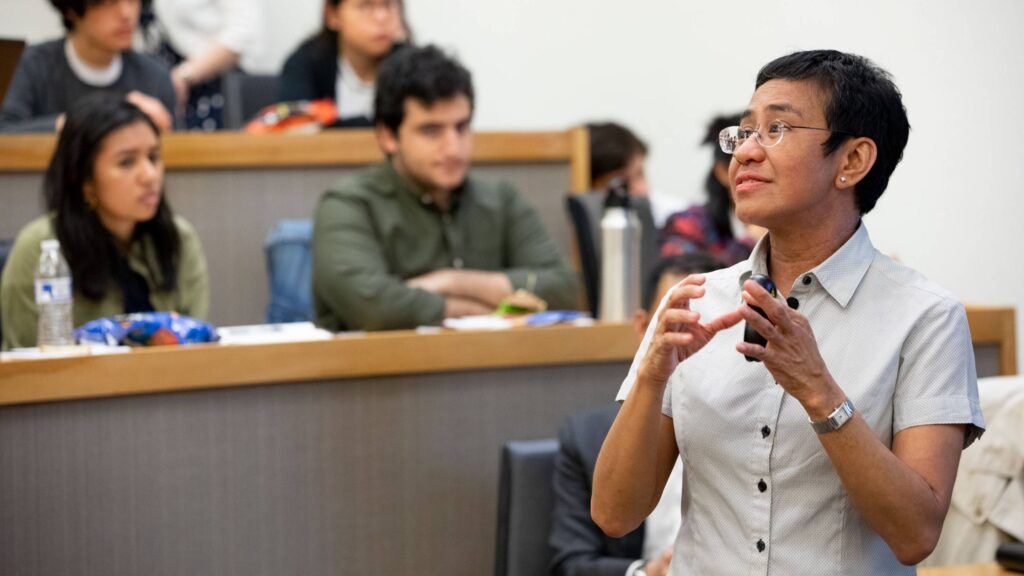
From Variety: Journalist Maria Ressa ’86 speaks with Variety about her experiences in fighting for press freedom and against the spread of misinformation.https://bit.ly/3aoIO0Q
Omar Wasow:Kamala Harris will help Biden ‘grow the Democratic coalition’: Princeton Prof (Yahoo Finance)
Tsung-Mei Cheng:US health chief to visit Taiwan, a COVID-19 success story (Associated Press)
Matthew Desmond:Could federal investment prevent an eviction crisis? (PBS)
Douglas Massey: Congress fails to reach stimulus deal, leaving tens of millions of Americans desperate for relief (CNBC)
LaFleur Stephens-Dougan:Democrats celebrate Kamala Harris as historic VP pick (WHYY)
Angelika Morris, undergraduate student:Alumna Answers Teachers’ Call For Donations At Boca Ciega (Patch)
Julian Zelizer:Be careful what you wish for, Mr. President (CNN) and Explainer: How the coronavirus changed U.S. political conventions, perhaps forever (Reuters)
Cornel West, professor emeritus:Cornel West: Is America ‘even capable of treating the masses of Black people with decency and dignity’? (The Washington Post)
Eddie Glaude: Begin Again: James Baldwin’s America and its Urgent Lessons for Our Own (The Bay Area Reporter) and More Americans trust Biden than Trump to handle the pandemic (PBS NewsHour)
Keeanga-Yamahtta Taylor: We Should Still Defund the Police (The New Yorker)
Patrick Sharkey:How cities can tackle violent crime without relying on police (Vox)
Arvind Narayanan: The Quiet Growth of Race-Detection Software Sparks Concerns Over Bias (The Wall Street Journal)
Sean Wilentz:What Tom Cotton Gets So Wrong About Slavery and the Constitution (NYR Daily)
Allen Guelzo:The complexities of the past (World Magazine)and Accuracy vs. overreach in teaching history (World)
Joshua L. Freeman, postdoctoral fellow:Uighur Poets on Repression and Exile (NYR Daily)
Jesse Farmer:Arctic summer sea ice could disappear as early as 2035 (National Geographic)
Adam Burrows:A Star Went Supernova in 1987. Where Is It Now? (The New York Times)
Gudmundur Stefansson:A Strange Planet has been Found that’s Smaller than Neptune But 50% More Massive (Universe Today)
Sarah Kapnick: Next-gen rescue vehicles leave ambulances in their dust (CNET)
Princeton University oceanographer to discuss new position as earth scientist during Princeton YMCA presentation
Centraljersey.com: Princeton YMCA’s next “Paths to Success” presentation for students will feature Princeton post-doctoral researcher Lionel Arteaga, an oceanographer from Venezuela, from 6-7 p.m. Aug. 19. https://bit.ly/2Y1RxkE
Capital-Gains Tax Rate Chasm Separates Trump, Biden
From The Wall Street Journal: Cites new research by Princeton economist Owen Zidar. https://on.wsj.com/3iBRSSU
Trenton High School Students present Princeton University STEM projects through MCCC’s Upward Bound Program
From MCCC: MCCC and Upward Bound partnered with Princeton University’s Materials Academy (PUMA) to teach students about developing their own apps, which they used to showcase their work. https://bit.ly/3fY917F
Two Princeton teams, one mission: the fight to create fairer election outcomes
From The Daily Princetonian: Although the Princeton Gerrymandering Project and Representable use different methods, both teams aim to stop gerrymandering — the practice that allows a political party in control to redraw maps and manipulate election outcomes. https://bit.ly/2CqhnXY
